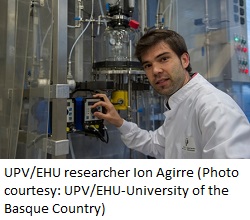 Big Oil is trying to get out of its obligations under the Renewable Fuels Standard (RFS), but an organization with close ties to the biofuels industry is calling on the government to stand its ground. The Biotechnology Industry Organization (BIO) is asking Environmental Protection Agency (EPA) Administrator Gina McCarthy to reject the recent petition from American Petroleum Institute and American Fuel and Petrochemical Manufacturers for a waiver of the 2014 volume obligations under the RFS. In an 11-page letter to the EPA, Brent Erickson, executive vice president of BIO’s Industrial & Environmental Section said that Big Oil already enjoys great flexibility in planning and choosing how it will comply with the RFS, shooting holes in the petroleum industry’s argument that compliance would hurt the U.S. economy.
Big Oil is trying to get out of its obligations under the Renewable Fuels Standard (RFS), but an organization with close ties to the biofuels industry is calling on the government to stand its ground. The Biotechnology Industry Organization (BIO) is asking Environmental Protection Agency (EPA) Administrator Gina McCarthy to reject the recent petition from American Petroleum Institute and American Fuel and Petrochemical Manufacturers for a waiver of the 2014 volume obligations under the RFS. In an 11-page letter to the EPA, Brent Erickson, executive vice president of BIO’s Industrial & Environmental Section said that Big Oil already enjoys great flexibility in planning and choosing how it will comply with the RFS, shooting holes in the petroleum industry’s argument that compliance would hurt the U.S. economy.
“BIO urges the EPA to deny the joint petition for several reasons. First, the petitioners do not meet the requirements to file the joint petition. The joint petition is also premature. The petitioners cannot demonstrate harm when the 2014 renewable volume obligations (RVOs) have not even been formally proposed.”
Erickson continues the 11-page letter, writing:
“The reality is that because they have blocked investment in infrastructure and created marketing challenges for higher blends of biofuels, the petitioners are now requesting the Administrator waive the 2014 RVOs to 9.7 percent of the domestic fuel supply. They created the very situation from which they are requesting relief.”
Erickson outlined the options Big Oil has, including accumulating Renewable Identification Numbers (RINs) to meet its 2014 RFS RVOs. And he says “while some individual refiners may choose to restrict U.S. fuel supply as a compliance strategy, market competition and the increasing production of biofuels will work in tandem so such a restriction will not harm the U.S. economy or consumers.”
Erickson concludes saying that the oil companies have had five years to prepare for the 2014 obligations but chose not to, mostly to protect their monopoly on energy.
“The petitioners and their members should not be rewarded for these efforts.”












 Verenium Corporation is focused on the development and commercialization of high-performance enzymes for a number of applications,
Verenium Corporation is focused on the development and commercialization of high-performance enzymes for a number of applications,